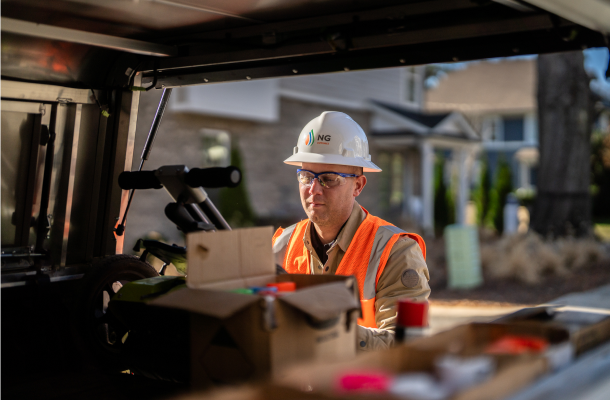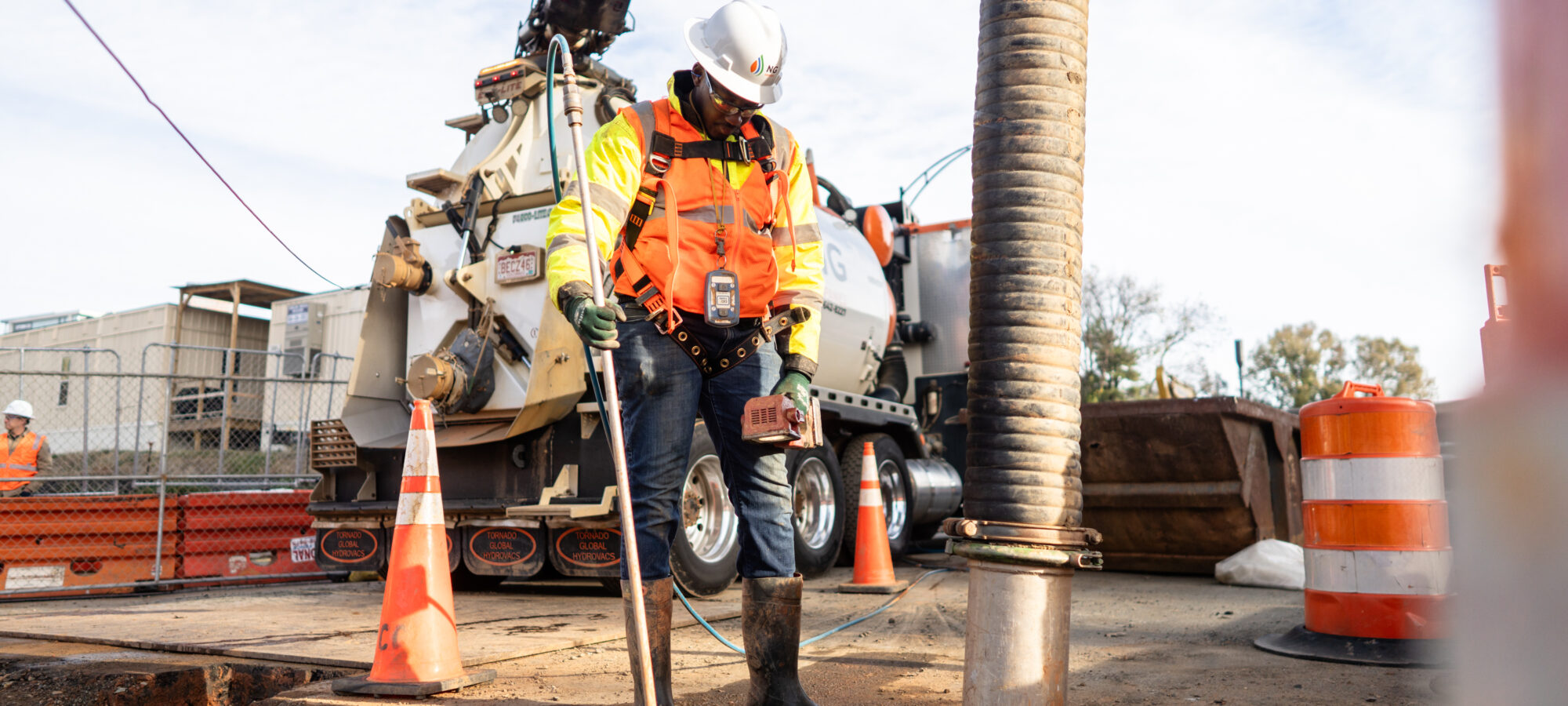Most construction and infrastructure projects involve some sort of excavation, which is the process of removing soil and debris to create space for building or to access underground utilities. There are lots of different kinds of excavation, but we’re going to focus on just two here: hydro excavation using a hydrovac) and traditional digging. We’ll guide you on what each one is, highlight their differences and benefits, and give you the information you need to choose the right approach for your next project.
What is hydro excavation?
Hydro excavation, also known as vacuum excavation, is a non-destructive digging method that uses pressurized water and a vacuum system to excavate soil. A high-pressure water jet breaks up the soil, which is then suctioned into a debris tank using a powerful vacuum. (If it sounds fun, it’s because it is!) Hydro excavation is precise, minimally invasive, and ideal for projects that require meticulous digging near sensitive underground utilities.
4 Primary Benefits of Hydro Excavation
Hydro excavation is the right choice for many job sites because of the unique benefits it provides. Here are four of the top reasons why you should consider hydro excavation:
- Superior precision and accuracy. You don’t want to tango with underground infrastructure and utilities systems without a very solid excavation plan in place. Traditional digging often lacks the precision you’re going to need to avoid or carefully move around utilities, pipes, cables, and more.
- Reduced risk of damage. Hydro excavation is a great excavation solution because it’s much easier to direct water at soil and debris or around delicate infrastructure than it is to steer a heavy piece of machinery in and around those same obstacles. The former reduces the risk of damaging underground utilities, reducing repair costs and project delays.
- Safer. The non-destructive nature of hydro excavation increases safety for workers and nearby structures by lowering the risk of accidental utility strikes or collapses.
- Better for the environment. Using more sustainable C&D practices today is a must. Hydro excavation is a more environmentally friendly option because it minimizes soil disturbance, reduces waste generation, and prevents soil erosion.
What are traditional digging methods?
Where hydrovac is all about precision, traditional digging methods rely on broader, less controlled, and imprecise excavation. Essentially, though, it refers to the use of mechanical excavators, backhoes, shovels, and other equipment to manually dig and remove soil. While effective for larger-scale excavation projects, traditional methods can be more invasive, time-consuming, and pose a higher risk of damaging underground utilities if poorly executed.
4 Primary Benefits of Traditional Digging Methods
Traditional digging methods used for excavation come with their own set of advantages, too. Here are four of the top reasons why you might opt for traditional excavation vs. hydro excavation:
- Versatile and flexible. Equipment like mechanical excavators, backhoes, and shovels are versatile and across a variety of soil conditions and terrains. That becomes particularly useful on jobs where less precision is needed because of the terrain or underground infrastructure beneath it.
- Powerful and fast. The mechanical equipment used in traditional digging is powerful and can dig through tough soil, rocks, and other obstructions quickly. When rapid excavation over a large area is needed, traditional excavation will typically win the day.
- Deep and far-reaching. Traditional digging equipment often has the capability to reach significant depths, making them a strong choice for deep excavation projects, like building foundations, trenches, and utility installations that require digging below the surface.
- Cost-effective. In situations with straightforward soil conditions and minimal risk of damaging underground utilities, traditional digging methods are usually going to be the more cost-effective route because they don’t require specialized equipment.
Hydro Excavation vs. Traditional Digging: Which Should You Choose?
When you’re deciding between hydro excavation and traditional digging methods, here are some things to keep in mind as you make your choice:
Project Scope
Determine the scale, complexity, and specific requirements of your excavation project to determine which method aligns best with your needs. Generally speaking, more complex projects will be better served by hydro excavation. Larger projects might be better served by traditional excavation. But if it’s large and complex, you might want to stick with hydro excavation.
Location and Access
Consider the accessibility of the excavation site, proximity to utilities, and any special restrictions that might impact your choice of excavation method. The closer you are to utilities, the more we recommend the precision that hydro excavation offers over traditional digging.
Budget and Timeline
Look at your budget and project timeline to help inform the most cost-effective and time-efficient approach. This one can get tricky, though. While traditional excavation can be more affordable at the outset, you could easily burn up any margin if you have to repair damage caused by heavy machinery.
Environmental Impact
Evaluate any possible environmental issues in the area and consider your own sustainability goals, if you have them. Hydro excavation may be the right move for you because of its minimal soil disturbance and waste reduction.
Meet the hydro pros you need to know.
Choosing the right excavation method and the right partner can make all the difference for your project. NG Companies offers expert hydro excavation services for more precision, fewer disruptions, increased sustainability, and more cost savings up and down your budget. Plus, hydrovac seamlessly integrates with our other services, including utility locating, line jetting, and video pipe inspection. If you’re ready to put the power of water to work for your projects, we’d love to hear from you.
Experience all the benefits of hydro excavation from NG Companies.
 About NG CompaniesLearn more about NG Companies’ values, missions, and why we’re the right choice to partner with you.
About NG CompaniesLearn more about NG Companies’ values, missions, and why we’re the right choice to partner with you. SafetyLearn more about how we keep our people, our partners, and the public safe.
SafetyLearn more about how we keep our people, our partners, and the public safe. NewsLearn more about how we keep our people, our partners, and the public safe.
NewsLearn more about how we keep our people, our partners, and the public safe.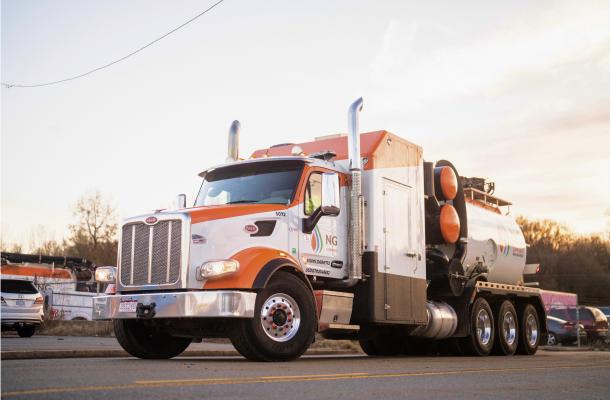 Our WorkTo learn the scope and caliber of NG Companies’ work, explore our proud body of work.
Our WorkTo learn the scope and caliber of NG Companies’ work, explore our proud body of work. OverviewDiscover how we deliver the highest level of damage prevention to ensure safety on all of your projects.
OverviewDiscover how we deliver the highest level of damage prevention to ensure safety on all of your projects.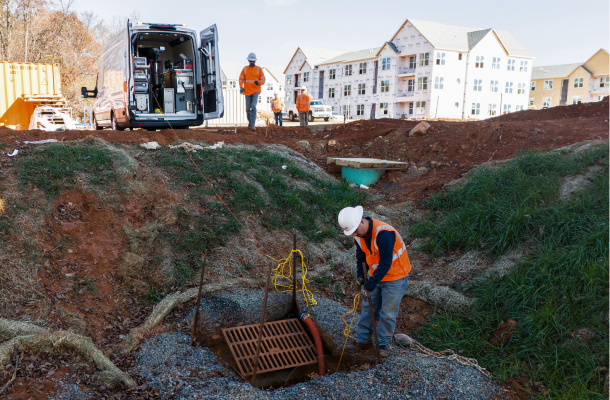 Video Pipe InspectionLearn how we operate our 360° video pipe inspection to ensure accuracy and precision.
Video Pipe InspectionLearn how we operate our 360° video pipe inspection to ensure accuracy and precision. HydrovacUnderstand what sets NG Companies apart with leading and precise industry technology.
HydrovacUnderstand what sets NG Companies apart with leading and precise industry technology.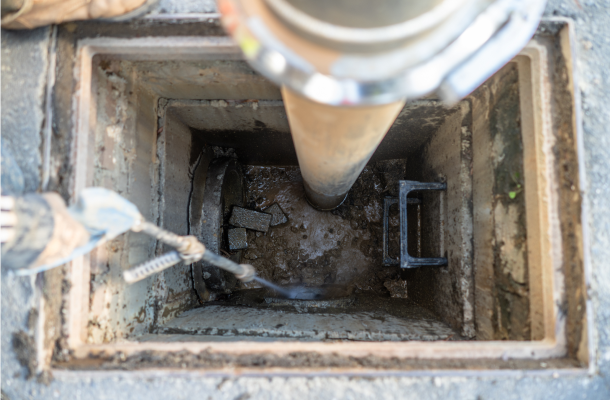 Line JettingLearn about NG Companies’ abilities to clear build-up and debris, damage assessment, and utility restoration.
Line JettingLearn about NG Companies’ abilities to clear build-up and debris, damage assessment, and utility restoration.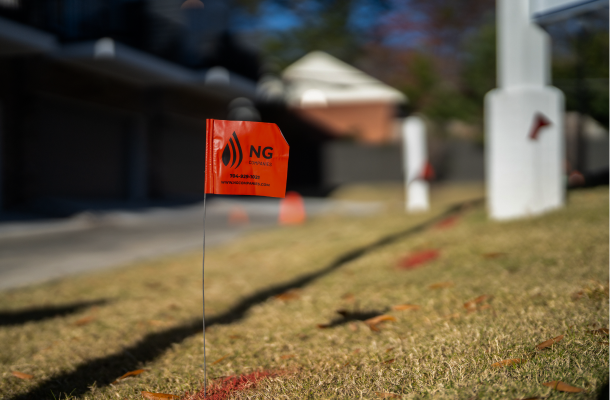 Utility LocatingNG Companies will provide swift and accurate utility locating services. Learn more about how we do it.
Utility LocatingNG Companies will provide swift and accurate utility locating services. Learn more about how we do it. About NG CompaniesLearn more about NG Companies’ values, missions, and why we’re the right choice to partner with you.
About NG CompaniesLearn more about NG Companies’ values, missions, and why we’re the right choice to partner with you. SafetyLearn more about how we keep our people, our partners, and the public safe.
SafetyLearn more about how we keep our people, our partners, and the public safe. NewsLearn more about how we keep our people, our partners, and the public safe.
NewsLearn more about how we keep our people, our partners, and the public safe. Our WorkTo learn the scope and caliber of NG Companies’ work, explore our proud body of work.
Our WorkTo learn the scope and caliber of NG Companies’ work, explore our proud body of work. OverviewDiscover how we deliver the highest level of damage prevention to ensure safety on all of your projects.
OverviewDiscover how we deliver the highest level of damage prevention to ensure safety on all of your projects. Video Pipe InspectionLearn how we operate our 360° video pipe inspection to ensure accuracy and precision.
Video Pipe InspectionLearn how we operate our 360° video pipe inspection to ensure accuracy and precision. HydrovacUnderstand what sets NG Companies apart with leading and precise industry technology.
HydrovacUnderstand what sets NG Companies apart with leading and precise industry technology. Line JettingLearn about NG Companies’ abilities to clear build-up and debris, damage assessment, and utility restoration.
Line JettingLearn about NG Companies’ abilities to clear build-up and debris, damage assessment, and utility restoration. Utility LocatingNG Companies will provide swift and accurate utility locating services. Learn more about how we do it.
Utility LocatingNG Companies will provide swift and accurate utility locating services. Learn more about how we do it. About NG CompaniesLearn more about NG Companies’ values, missions, and why we’re the right choice to partner with you.
About NG CompaniesLearn more about NG Companies’ values, missions, and why we’re the right choice to partner with you. SafetyLearn more about how we keep our people, our partners, and the public safe.
SafetyLearn more about how we keep our people, our partners, and the public safe. NewsLearn more about how we keep our people, our partners, and the public safe.
NewsLearn more about how we keep our people, our partners, and the public safe. Our WorkTo learn the scope and caliber of NG Companies’ work, explore our proud body of work.
Our WorkTo learn the scope and caliber of NG Companies’ work, explore our proud body of work. OverviewDiscover how we deliver the highest level of damage prevention to ensure safety on all of your projects.
OverviewDiscover how we deliver the highest level of damage prevention to ensure safety on all of your projects. Video Pipe InspectionLearn how we operate our 360° video pipe inspection to ensure accuracy and precision.
Video Pipe InspectionLearn how we operate our 360° video pipe inspection to ensure accuracy and precision. HydrovacUnderstand what sets NG Companies apart with leading and precise industry technology.
HydrovacUnderstand what sets NG Companies apart with leading and precise industry technology. Line JettingLearn about NG Companies’ abilities to clear build-up and debris, damage assessment, and utility restoration.
Line JettingLearn about NG Companies’ abilities to clear build-up and debris, damage assessment, and utility restoration. Utility LocatingNG Companies will provide swift and accurate utility locating services. Learn more about how we do it.
Utility LocatingNG Companies will provide swift and accurate utility locating services. Learn more about how we do it.


